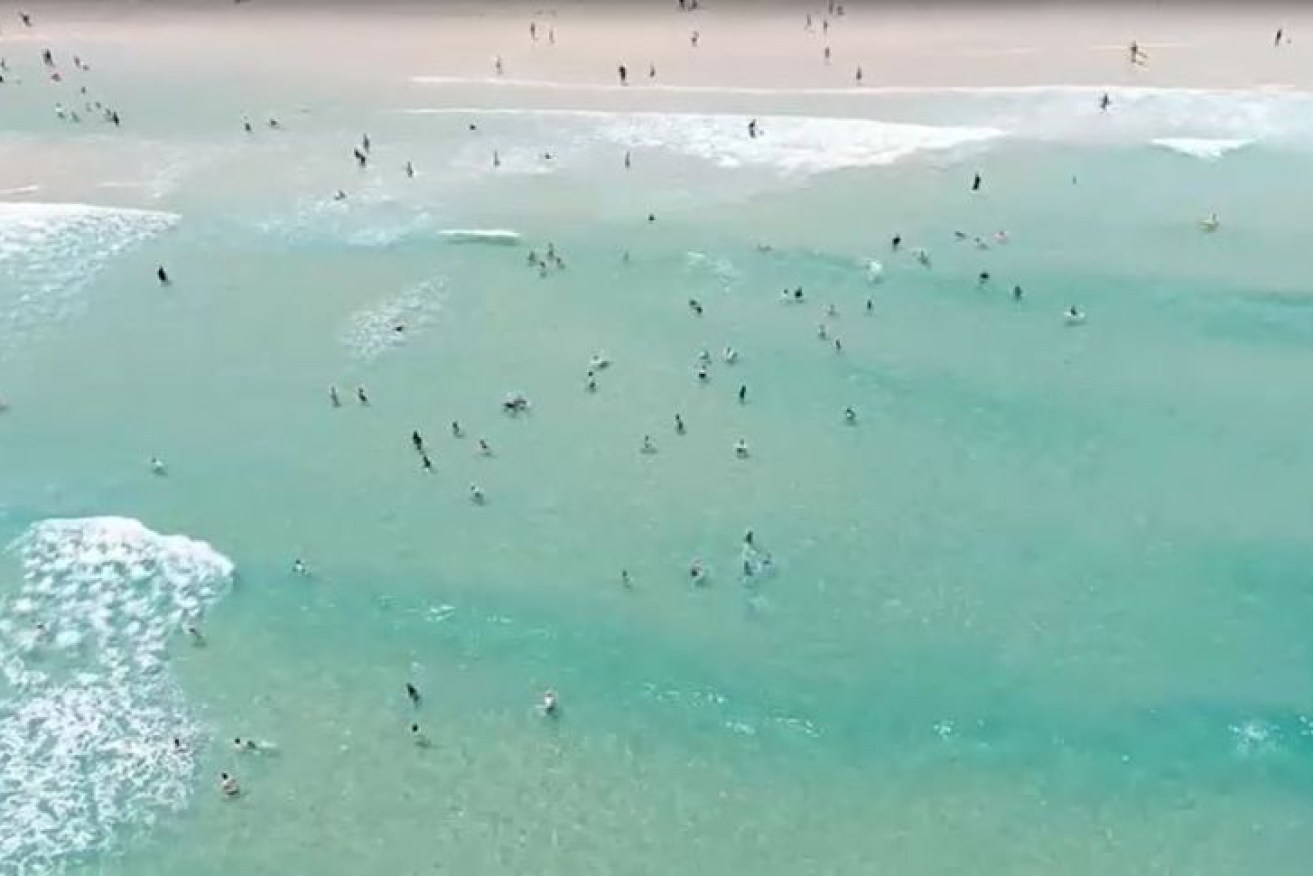Eye in the sky: Drones to keep swimmers safe from surf and sharks
Two years of training will be put to the test from Saturday with Sunshine Coast lifeguards launching drones to help with the busy school holiday period.

Sunshine Coast lifeguards hope two drones being officially launched for the first time this weekend will help prevent drownings and shark attacks on local beaches.
Lifeguards have been in training and trialling the technology for two years to begin using them in regular patrols for the first time these school holidays, beginning on Saturday.
The M600 drone, worth $20,000, can travel up to 400 metres, deliver rescue pods for struggling swimmers, and even has a PA system to help lifeguards communicate with beachgoers.
A second, smaller drone worth $6000 will also be used for surveillance to help scan beaches and identify rips, changing conditions, and marine life like sharks.
Easily spot sharks ‘even in dirty water’
Lifeguard supervisor Trent Robinson said the drones would be used at Alexandra Headland and Coolum beaches this weekend and across the coast for the rest of the season.
“We’re trying to be proactive and stop rescues from happening. To do that, having eyes in the sky is a big help,” he said.
“We have noted a couple of sharks that we’ve seen. It’s amazing with them [the drones] in the air how quickly we can identify marine movement, even in quite dirty water. “We would much rather prevent a rescue or shark attack from happening, so anything we can do to prevent them is a big plus.”
Robinson said the drones would be a more cost-effective way to carry out scans of beaches previously conducted by rescue helicopters, and more frequently.
“A helicopter would go up and down the beach on school holidays and in summer once or twice,” he said.
“This will be like a helicopter and be in the sky all morning if we want. “It will just really help our lifeguards and lifesavers.”
Busy school holidays to put training to test
According to Robinson, lifeguards have been training to become advanced pilots, understanding CASA regulations about flying heights and capabilities, and privacy issues.
“That’s why it’s taken years to get to this stage, to get trained in the laws,” he said. “We’ve been at Mooloolaba, Alex, and Coolum just trialling and training with lifeguards. Now we will be able to contact lifeguards and do full half-day patrols whereas before it was just an hour or two.
“With the regulations under CASA we can only fly them at visual line of sight, or 400 metres, so right now they’ll be out the front of the beach … and out on the water.”
Robinson said the launch could not have come at a better time with the school holidays expected to see an onslaught of people, particularly families, pack local beaches.
“Our season also starts this weekend and we are expecting really big numbers,” he said. “Especially with COVID restrictions and no one being able to travel, people will be hitting the beach.”
An extra lifeguard will also be on duty at the Maroochy river mouth from this weekend, with a new lifeguard tower and two lifeguards operational at Bokarina Beach for the first time.
– ABC / Tara Cassidy












